Esta entrada también está disponible en: Aragonés Català Español Français English
THE LUXURY OF PISSING
Can you imagine that from tomorrow they would tell us all that each family can only use 30 litres of water a day?
With the fact that it’s getting hotter and hotter and there are fires and it’s not even raining, the other day, among friends, it occurred to us that maybe in a few years we could start to have water restrictions. Can you imagine that?
It wouldn’t be so strange if, if things keep getting worse, the day comes when we have a meter at home that limits us to, for example, 10 litres per person per day. What would you spend yours on?
Maybe we would take a shower every other day. I think it would be better to introduce showering on a specific day for everyone, because then, even if one person smelled, the others would smell too and it would be less noticeable. Well, that’s it.
Then wash the dishes. Let’s see, I wouldn’t mind not doing the dishes at all, really. Maybe we could all switch to disposable dishes and that would be the end of it. It would be a bit expensive.
I’m worried about peeing and other major issues because every time we flush the toilet, that could be 7 litres of water and I can’t keep track of it. I hope you’re not a frequent voider, because you’re going to have to make some tough decisions. I’m sure that water would soon start to be sold at exorbitant prices. I can imagine luxury shops selling a Louis Vuitton bag (you know, a Louis Vuitton) and a carafe of water next to it: €2000.
Can you imagine having to worry about all this every day of your life? Not about the luisvi, but about what you spend your water on and how much you spend. There are 2.2 billion people in the world who do this. How? Don’t ask me because I don’t even know, but you can read on to find out more.
Description
World Water Day is celebrated every 22 March to remember the importance of this essential liquid. Despite the fact that all social and economic activities depend to a large extent on the supply and quality of fresh water, 2.2 billion people live without access to safe drinking water. This celebration aims to raise awareness of the global water crisis and the need to seek measures to address it.
The sixth of the UN Sustainable Development Goals for 2030 is to “Ensure availability and sustainable management of water and sanitation for all”. There has been progress in expanding access to safe water and sanitation, but there are still billions of people (mainly in rural areas) who still lack these basic services.
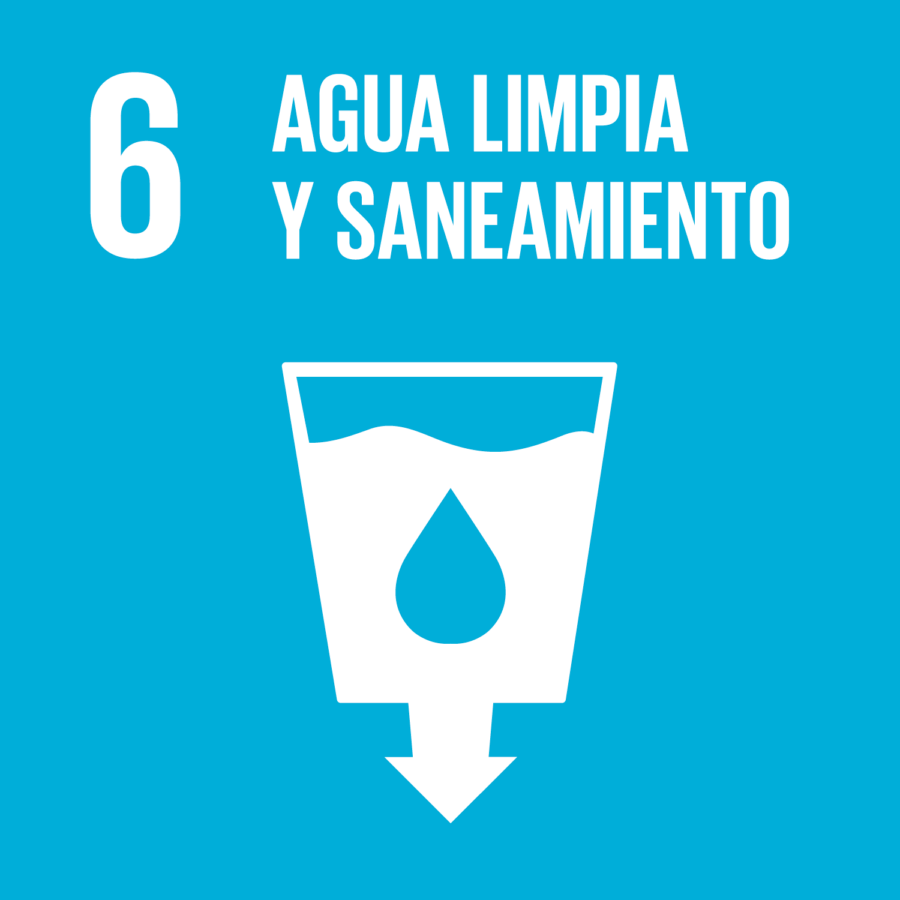
Globally, one in three people do not have access to safe drinking water. Two out of five people do not have a basic facility to wash their hands with soap and water.
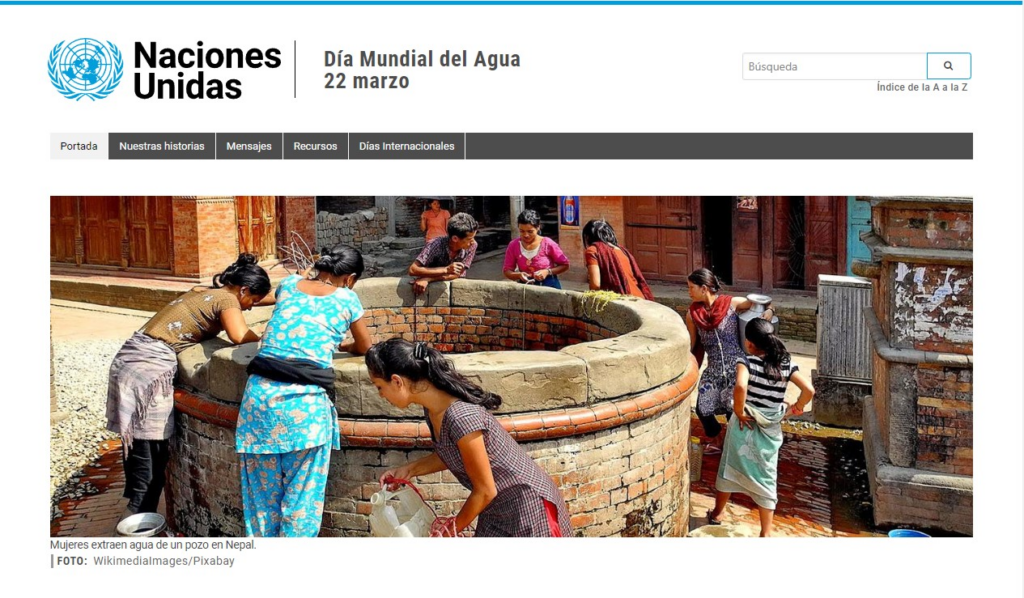
Further information
The objectives and contents of this proposal can relate to two other dates for which there is specific content: International Day against Climate Change (24 October) and World Environment Day (5 June). We also highlight the celebration of World Health Day (7 April) and World Day to Combat Desertification and Drought (17 June).
A detail
In 2023, the United Nations focuses the theme of this World Water Day on the need to “accelerate change“. Business as usual is no longer an option: the problems throughout the water cycle are undermining progress on the planet’s major problems: wars, hunger, natural disasters, health crises, etc. It affects gender equality, the labour world, education, industry, natural disasters… Water scarcity is a global problem.
The UN Water 2023 Conference (22-24 March, New York) has set a path to finding solutions to the current water and sanitation crisis. The commitments agreed at that forum constitute the Water Action Agenda, a rapid and transformative plan that can also reflect the individual action of everyone.
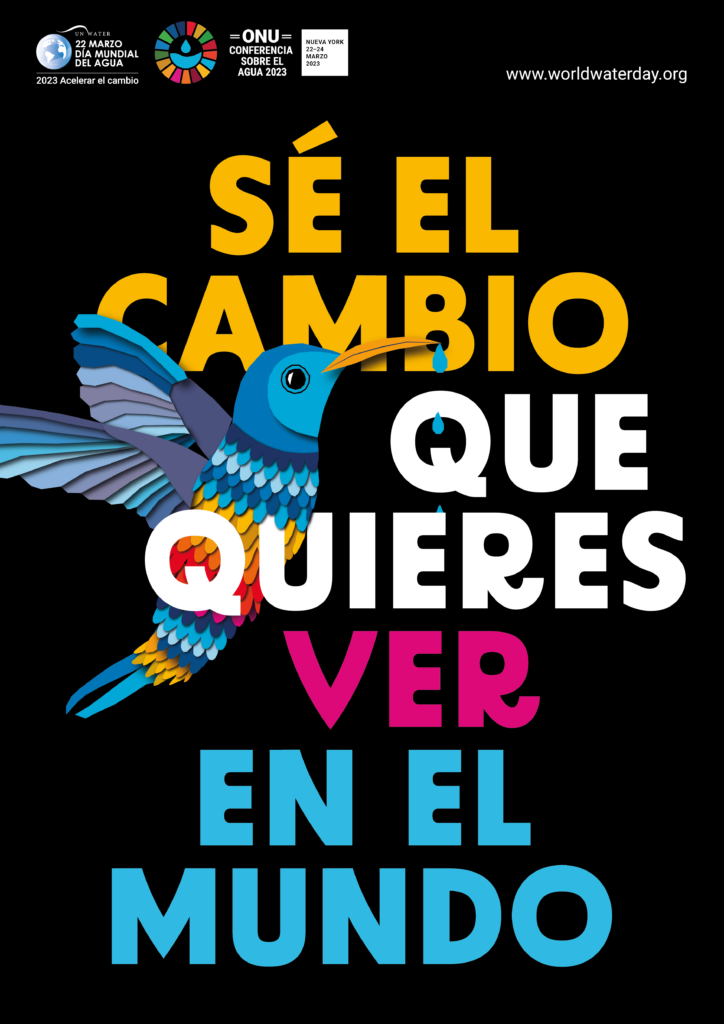
In Aragon…
In our territory, water is a fundamental element that goes beyond the merely material and enters the realm of social psychology. Aragonese identity, the many ideas that run through the Aragonese imagination, are crossed by water: by the need to turn it into a future, by the feeling of belonging. “Dust, fog, wind and sun, and where there is water, an orchard”, says the song. In our most recent history, the campaigns in defence of water, the fight against the water transfer, the debates on water policy, irrigation, the flooding of villages by reservoirs… in one way or another, water is always present.
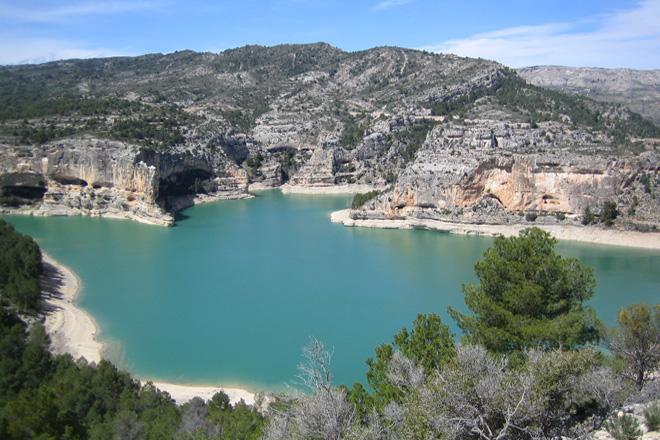
The management of such an important element must be responsibility of the Public authorities. The Instituto Aragonés del Agua (Aragonese Water Institute) is a public law entity which is attached to the department responsible for water matters of the Government of Aragon, and its purpose is to exercise the powers, functions and services that are the responsibility of the water administration of our autonomous community.
The most important global event held in Aragon in the last century was the 2008 International Exhibition, whose central theme was… water.
Water connects the local (the needs of a community) with the global, as water policies are global in nature.
A reflection
From the beginning of time and forever, water is life. It is such a crucial and essential element that it is present in several of the sustainable development goals set for 2030.
In addition to the goal we have already discussed (“Ensure availability and sustainable management of water and sanitation for all”), there is another that directly concerns water as an essential global resource whose careful management is key to the future: Goal 14: “Conservation and sustainable use of oceans, seas and marine resources”.
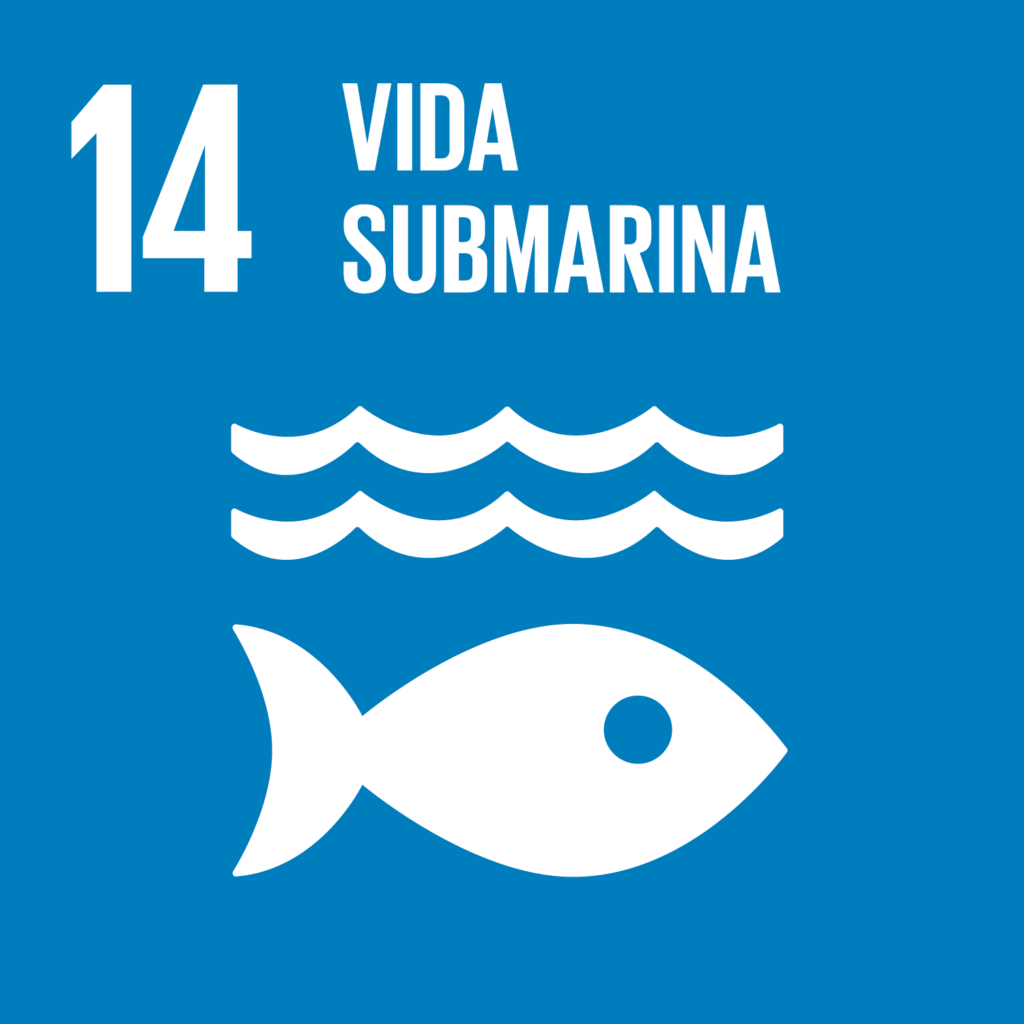
But that’s not all… water is in everything. It also relates to a greater or lesser extent to the fight against poverty (Goal 1) and hunger (2), to health and well-being (3), to access to affordable and clean energy (6), to responsible production and consumption (12), to climate action (13) and to the life of terrestrial ecosystems (15).
Suggestions for teachers
This topic offers many possibilities as it has a very definite link with daily experience, with the environment, with consumption habits and daily attitudes. It is essential to make students aware of the importance of water in our own lives, of responsibility in its proper use, of being able to help sustainability, starting with oneself.
This can be supported by a selection (adapted to different ages) of proposals such as those offered on the Educación 3.0 website or in Canal Educa.
Going down to the immediate environment, a joint work can be proposed on different aspects related to the 2008 Expo, dedicated to water. The boys and girls do not have personal memories of that event (perhaps they were not even born), but they can look for information on the Internet, also among their elders (short interviews, how they experienced it, what memories they have, etc.), identify the place where the event took place and the place where it was held. ), identify the place where it was held, what infrastructures and facilities remain… In this sense, it may be interesting to learn about the activities of the Expo Legacy Association, as an organisation dedicated to drawing attention to the current state of the site, the possibilities for improvement, or its interest in conserving the intellectual legacy of that exhibition, based on the debates in the Water Tribune and in the Pavilion of Citizen Initiatives (“El Faro”).
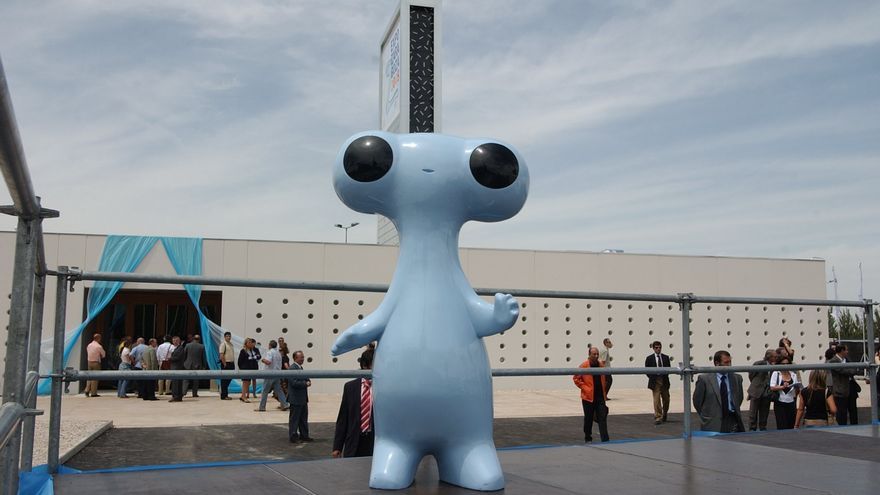
Also, with a more pronounced diachronic character, to promote research on past events in which water plays a fundamental role. One of these milestones can be suggested, for example:
- The bronze of Botorrita exhibited in the Museum of Saragossa (a legal document on a water lawsuit).
- The figures of Ramón de Pignatelli and Joaquín Costa.
- Opposition to the Ebro water transfer in the 1970s as a reaffirmation of an Aragonese conscience.
Throughout Secondary Education, the Aragonese curriculum incorporates elements related to sustainable development and the environment, as well as protection against emergencies and catastrophes, with one of its general methodological principles being the relationship with the social and natural environment and emphasising health education and environmental education.
Objectives that this proposal helps to achieve
ESO:
- To critically assess social habits related to health, consumption, care of living beings and the environment, contributing to their conservation and improvement.
- To develop basic skills in the use of information sources in order to acquire new knowledge with a critical sense.
Baccalaureate:
- To know and critically assess the realities of the contemporary world, its historical background and the main factors of its evolution, participating in a supportive way in the development and improvement of their social environment.
- To know and critically assess the contribution of science and technology in changing living conditions, as well as strengthen sensitivity and respect for the environment.
Subjects with which it can be linked
- Biology and Geology / Geography and History / Ethical values (ESO, 1st and 2nd cycles)
- Economics (ESO, 2nd cycle)
- Baccalaureate: To be assigned according to modality. For example, Earth and Environmental Sciences, also Geography, History …
Development of competences
- Social and civic competences
